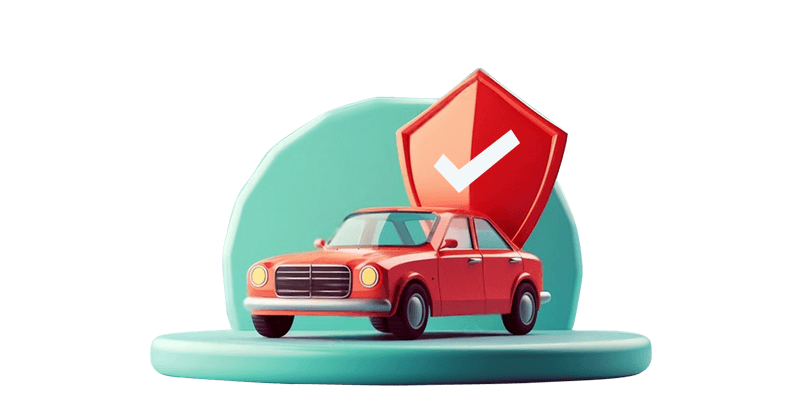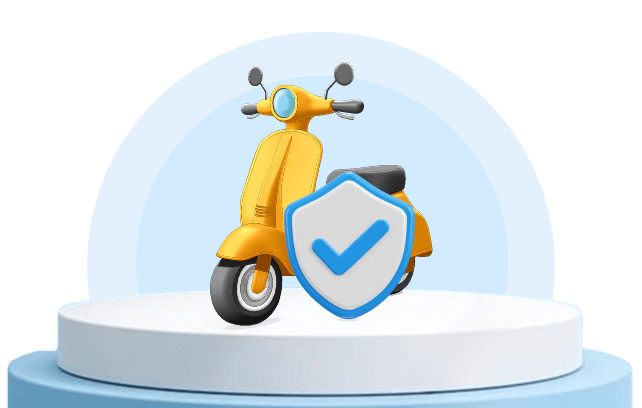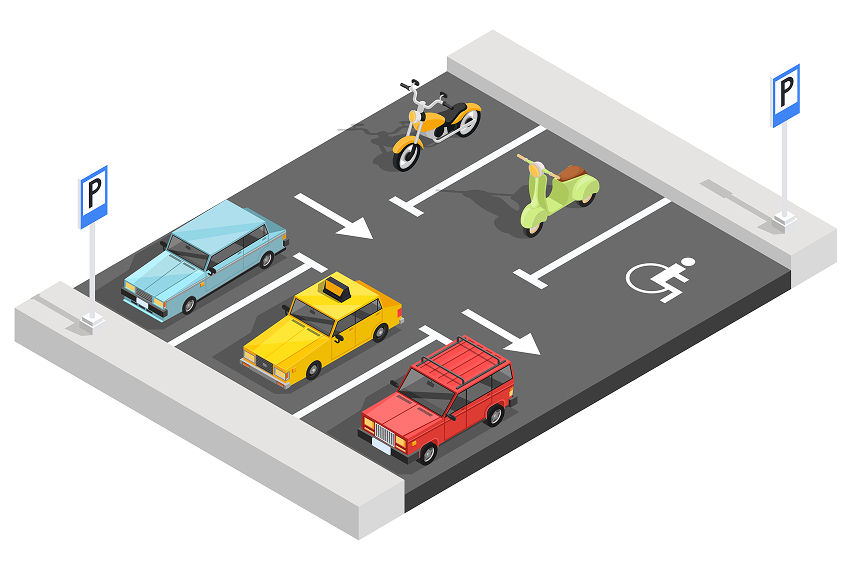
Are you thinking of insuring your beloved car, or is it time for your annual policy renewal? Either way, it is essential to keep in mind the basics and be a little prompt, so that your investment and finances stay protected and you can drive with peace of mind.
In this article, our focus is on a few common mistakes Filipinos make when buying motor vehicle insurance, whether for their car or motorcycle. A heads-up on these common errors will not only help you secure a great deal but also a policy that best fits your routine and requirements.
If all these talks are making you overwhelmed, then don’t be, because with Zen Insure, your insurance journey will be smooth as butter. All you have to do is read, process, and execute - that’s it, you are sorted.
But first, let’s get down to the basics, which are essential for a policyholder to understand for a confusion- and error-free policy buying experience.
Car insurance in the Philippines - Must-know basics
Wanna stay protected from unexpected financial losses? Then insurance is the way to go.
Car insurance in the Philippines is mandatory, specifically for the CTPL (Compulsory Third-Party Liability) policy; the rest is at the discretion of the policyholder. This is the reason why CTPL is also affordable; everybody can have it without incurring significant financial strain, and as a benefit, they don’t have to compensate for third-party injury or death caused by their vehicle. Another way to look at it is that the third party is taken care of; they do not have to bear any expenses.
Here, we’d also like to point out that to make CTPL a universal insurance policy for every motor vehicle owner, the government has smartly made it a prerequisite for the LTO vehicle registration. Which, if you don’t know, is required to drive legally on public roads and to obtain a driver’s license.
Crux - CTPL insurance is a must; it is affordable, covers third-party injury/death, and is a must for LTO vehicle registration.
What about coverage for your vehicle and yourself or your passengers? Is there an insurance policy for that? The answer is yes, and the coverage comes in the form of Comprehensive Insurance.
This is not a compulsory insurance policy, but the experts highly recommend it for its wide coverage. It offers your financial protection against several uncertain incidents, including damage to the vehicle due to an accident, collision, or natural disaster. It also provides compensation if the car is stolen or damaged in an attempted robbery or if third-party property is damaged. What about you? The comprehensive policy covers the policyholder’s medical and hospital bills in the event of an accident-related injury, death, or disability.
But here’s a catch. Not all comprehensive policies are the same, nor do they offer the same level of coverage. Therefore, it is crucial to read the fine print and avoid falling into this common trap. This can be considered one of the common mistakes people make when buying insurance.
Also Read: CTPL vs. Comprehensive Car Insurance: What’s the Difference?
 Photo from Shutterstock
Photo from ShutterstockBuying car insurance: Top 5 mistakes to avoid
Mistake 1: Buying insurance because it is cheap
One of the biggest mistakes people make when buying car insurance is opting for the cheapest option. They consider insurance as a legal requirement more than anything else, and therefore want to spend as little as possible on it. If you share the same mindset, then stop right there, as it could be one of the worst decisions you have ever made.
Why? In case of an accident, collision, or any unfortunate event, if your car gets damaged or you get injured, the entire financial burden will fall upon you. And that, my friend, would be way worse than paying a premium for a policy that might cost a bit but stands by you during such challenging times.
Let us understand this with a real-life example -
Liza purchased an insurance policy with a considerably low premium. That same year, her car got flooded due to the typhoon. When she approached her insurance agent to claim, she discovered that her inexpensive policy didn’t cover damage due to typhoons or any other natural disaster. The story ended with Liza paying a hefty amount for car repair.
On the contrary, if Liza had invested in a good policy with optimum coverage, the insurance provider would have covered all the repair and replacement costs.
Lesson: Invest in a good insurance policy with theft, collision, passenger, and acts of god coverage.
Mistake 2: Not paying attention to the policy exclusions & fine print
Investing in a good insurance policy with optimum coverage is not enough. A policyholder also ends up in trouble for ignoring the policy's fine print and exclusions.
Before signing the policy, it is essential to read it thoroughly. If you are unable to understand the technical terms, don’t hesitate to ask for clarification. Ensure that you clear all your doubts and gain a clear understanding of what coverage you have and what is not covered.
Most car insurance policies do not cover or exclude claims where the vehicle is used for commercial or ride-hailing services, has non-declared aftermarket modifications, and is driven by someone under 17/unlicensed/unauthorised. Also, the car is not covered against natural calamities unless stated in the policy.
Lesson: Read the policy thoroughly and clarify any questions or concerns you may have.
Mistake 3: Not comparing policies from different providers
Going with a friend or family member's recommendation for an insurance provider is not a good idea. Instead, you should search different providers, gather quotations, and compare coverage options among other things before making a final call.
It is generally recommended to compare at least three to four providers in terms of claim process, customer service, and comprehensive insurance coverage.
Tips to compare car insurance policies -
- Use policy comparison tools available online on sites like Zen Insure.
- Gather first-hand customer reviews (if possible), else read reviews online.
- Do check the insurance providers' IC certification.
Lesson: Compare a few policies before making a decision.
 Photo by Freepik
Photo by FreepikMistake 4: Not disclosing vehicle modifications, after-market accessories or tire usage
Hiding information from your insurer is a terrible idea, as it may lead to severe consequences, such as claims being denied or policies being cancelled.
It is therefore recommended to stay truthful and declare any modifications, usage changes, or aftermarket accessories at the earliest opportunity. For instance, if you have had a new sound system installed, started using the car for Grab services, or acquired new alloy rims, make sure your insurer is aware of these changes and that your policy is updated to reflect them.
Lesson: There is no benefit in hiding facts about your car; it will only lead to coverage denial.
Mistake 5: Not paying attention to the insurer’s reputation
Obtaining an insurance policy with good coverage and understanding the exclusions is not enough. What most policyholders tend to overlook is the insurance provider's overall reputation. This can be easily done by talking to existing policyholders, visiting insurance forums, joining Facebook groups, and reading online reviews on Google.
Apart from IC certification, an insurer must be reliable, standing by the policyholder when it matters the most. Be cautious of providers with low claim approval rates, lengthy claim processing times, subpar customer service, and undisclosed fees.
Lesson: Make sure to check insurance providers' goodwill before associating with them.
Also Read: Top 10 Car Insurance Companies in the Philippines
Bottom line
Like buying a car, getting an insurance policy for your vehicle is a lengthy and mindful process. Having the means to buy won’t make things easy, as there are several factors you need to consider to obtain a good policy that acts as a shield when the need arises. It doesn’t make a difference if you are new to the insurance world or not; scenarios change, and revisions might be required at the time of policy renewal.
Our advice is that whenever you are considering buying a new policy or renewing your plan, take the following steps first: assess your insurance needs, compare at least three to four plans from different providers, and review the policy terms, exclusions, and inclusions. Furthermore, avoid the above-discussed five mistakes, and you are good to go.
FAQs
Q1. How long does a car insurance claim take to get settled?
Ans. Insurance claim processing times typically range between a few days and a few weeks. It all depends on the documentation, inspection time, and the insurer’s claim department efficiency.
Q2. What is an insurance deductible?
Ans. An insurance deductible is the amount a policyholder pays out of pocket after an accident, before the provider releases the claim settlement amount.
Q3. I recently purchased a second-hand car. Does it need to be insured?
Ans. Every motor vehicle in the Philippines, whether new, old, or used, is required to be insured. CTPL is the minimum insurance requirement set by the government.
Q4. What coverage do I get under CTPL insurance? Is it enough?
Ans. CTPL insurance provides financial protection to the policyholder against injuries or death caused to a third party by the insured vehicle. It offers no coverage to the insured vehicle or the policyholder, which makes it an incomplete insurance plan.
Q5. What insurance plans shall I get for coverage against theft, fire, and accidental damage?
Ans. For such extensive coverage, comprehensive insurance is perfect.
Q6. My comprehensive insurance plan does not include AON coverage. What shall I do?
Ans. Some insurance plans do not cover Acts of Nature under a comprehensive insurance plan. However, do not worry; you can obtain it as an add-on coverage.
Q7. Is it possible to register my car without insurance?
Ans. To register your vehicle at the LTO office, you first need to get CTPL insurance. There is no alternative course of action.
Q8. I recently modified my car. Is it essential to declare the information to the insurer?
Ans. It is highly recommended to declare vehicle modifications to your insurer; failing to do so may result in your claim being denied.
Q9. Is it legal to buy an insurance policy online?
Ans. Yes. Many insurance providers offer policyholders the option to purchase plans online. Ensure the company is certified by the IC.
Q10. Are accessories covered under car insurance?
Ans. Standard accessories are usually covered under insurance. However, after-market accessory coverage is offered when such items are declared to the insurer.
Also Read: What is covered (and not covered) in a car insurance policy in the Philippines










